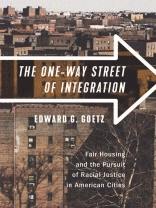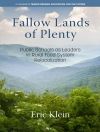The One-Way Street of Integration examines two contrasting housing policy approaches to achieving racial justice. Integration initiatives and community development efforts have been for decades contrasting means of achieving racial equity through housing policy. Goetz traces the tensions involved in housing integration and policy to show why he doesn’t see the solution to racial injustice as the government moving poor and nonwhite people out of their communities.
The One-Way Street of Integration critiques fair housing integration policies for targeting settlement patterns while ignoring underlying racism and issues of economic and political power. Goetz challenges liberal orthodoxy, determining that the standard efforts toward integration are unlikely to lead to racial equity or racial justice in American cities. In fact, in this pursuit it is the community development movement rather that has the greatest potential for connecting to social change and social justice efforts.
สารบัญ
Introduction: Alternative Approaches to Regional Equity and Racial Justice
1. The Integration Imperative
2. Affirmatively Furthering Community Development
3. The ‘Hollow Prospect’ of Integration
4. The Three Stations of Fair Housing Spatial Strategy
5. New Issues, Unresolved Questions, and the Widening Debate
Conclusion: Everyone Deserves to Live in an Opportunity Neighborhood
เกี่ยวกับผู้แต่ง
Edward G. Goetz is Professor of Urban and Regional Planning and Director of the Center for Urban and Regional Affairs at the University of Minnesota. He has published widely, including, most recently, New Deal Ruins.












